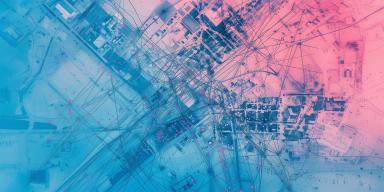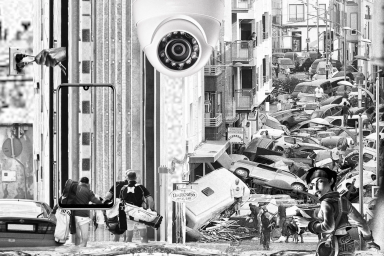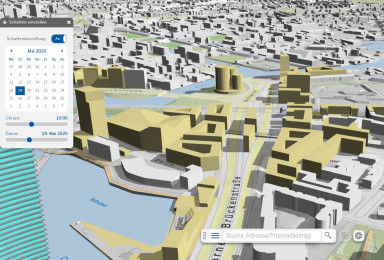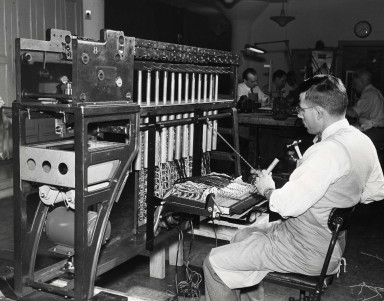Towards the digilogue city
Investigating multi-modelling approaches within urban digital twins
This dissertation explores the integration of multi-modelling approaches within urban digital twins (UDTs) to address urban complexity and promote sustainable urban development. Digital twins, widely used in various industries, face unique challenges in urban contexts due to the inherently complex, adaptive, and politically charged nature of cities. The research aims to develop novel socio-technical systems for multi-modelling, enabling the creation, implementation, and application of diverse simulation models to support inclusive urban planning. By combining methodologies from urban planning, computer science, complexity science, and participatory design, the dissertation seeks to bridge gaps in current approaches by co-developing open-source tools and interdisciplinary collaboration.
Linked to the ongoing ‘Connected Urban Twins’ project, Germany’s largest public smart city project, the research focuses on three core aspects: the creation of multiple models reflecting diverse perspectives, the implementation of modular infrastructure for these models, and the application of the models in real-world urban scenarios. Employing a modified participatory design approach, the work involves stakeholders in co-developing tools and processes. Exploratory case studies will evaluate the technological and practical feasibility of these systems, contributing both practical prototypes and theoretical insights into the implications of multi-model entanglement for urban representation.
- urban digital twins
- multi-modelling and simulation
- participatory design of participatory systems
- digital city
Context
Cities are complex adaptive systems. Thus, unlike digital twins developed for the purpose of manufacturing, creating an urban digital twin (UDT) is a matter of integrating urban complexity into the digital sphere and linking the digital processes back to the real world. While the process of modelling certain domains of a city is a relatively well-understood process, attempting to twin a city imposes a variety of challenges: The rather sharp distinction between reality and model becomes blurry, fusing the digital and the analogue into one entangled ‘digilogue’ or ‘landscape that is a mixture of both’.1 One of the most promising and discussed approaches to incorporate the complex character of real-world urban systems into simulation models of UDTs and use the technology for the common good is the inclusion and application of multi-modelling practices. Multi-modelling can be defined as the attempt to create, implement, and make use of multiple representations of a complex system in a UDT. At its core lies the proposition that by considering multiple perspectives, formalisms, and paradigms, the limitations, blind spots, and biases of a single monolithic model can be effectively mitigated.
Aims
The dissertation’s aim is to investigate how multi-modelling methods and tools can support the creation, implementation, and application of simulation models within UDTs for a more inclusive and sustainable urban development. The three aspects – model creation, model implementation, and model application – are selected as distinct steps of the classical modelling process. For each, the aim is to explore the linkage between novel socio-technical systems and their effects on inclusive and sustainable urban development.
At the nexus of futuring practices, anticipatory systems theory, and computational modelling and simulation, the research produces two kinds of contribution: On a practical side, it results in documented, open-source code for novel multi-modelling tools. On a theoretical side, the dissertation aims to discuss the implications of a multi-model entanglement of reality and representation for sustainable urban development. As the thesis is situated in a dynamic process, it is inherently of exploratory nature, mapping the steps towards an inclusive ‘digilogue’ city.
Research design
The core of the proposed dissertation is marked by the investigation of novel socio-technical systems with regard to multi-modelling in the context of UDTs. The development of the tools and their embedding in a socio-technical system follows a modified participatory design of participatory systems (PTPS) approach. Such an approach is build on (complex) systems theory, design theory, and participatory action research and aims to ‘create sustainable relationships supported by distributed information and communication technology’.2 Its five steps that will be adopted in the context of the creation, implementation, and application of multi-modelling are: (1) setting the scene, (2) exploring the current situation, (3) defining possible futures, (4) transitioning, and (5) consolidating the transition. Three exploratory case studies explore how the creation, implementation, and application of multi-modelling methods in socio-technical settings can each be accomplished and how they link with the broader sustainable urban development processes3. The results are then theoretically discussed in the light of an emerging ‘digilogue’ city, entangling reality and digital representation in one.
Supervisors:
- Prof. Dr. Gesa Ziemer
- Prof. Dr. Trivik Verma




